A Seminar on the Belt and Road Initiative and the Cooperation and Development in Central Asia Held in Beijing
Today, profound changes unseen in a century are accelerating. The changes of world, time and history are unfolding in ways like never before. Against this backdrop, Central Asia, located in the hinterland of Eurasia, is of great strategic significance. On April 26, a seminar on the Belt and Road Initiative (BRI) and the Cooperation and Development in Central Asia, organized by the Joint Council of the International Cooperation Center (ICC), was held in the Hall of Crane at Beijing International Club. Chen Jinxing, Deputy Head of the Committee on Social and Legal Affairs of the 13th National Committee of the Chinese People’s Political Consultative Conference, the first Chairman of the China Committee of the Silk Road Business Council and former Chairman of China Datang Corporation, attended the seminar and delivered a keynote speech. Zhang Chongqing, member of the Strategy Advisory Committee of the ICC and Honorary Chairman of the China Group Companies Association (CGCA), presided at the seminar and made a conclusion.
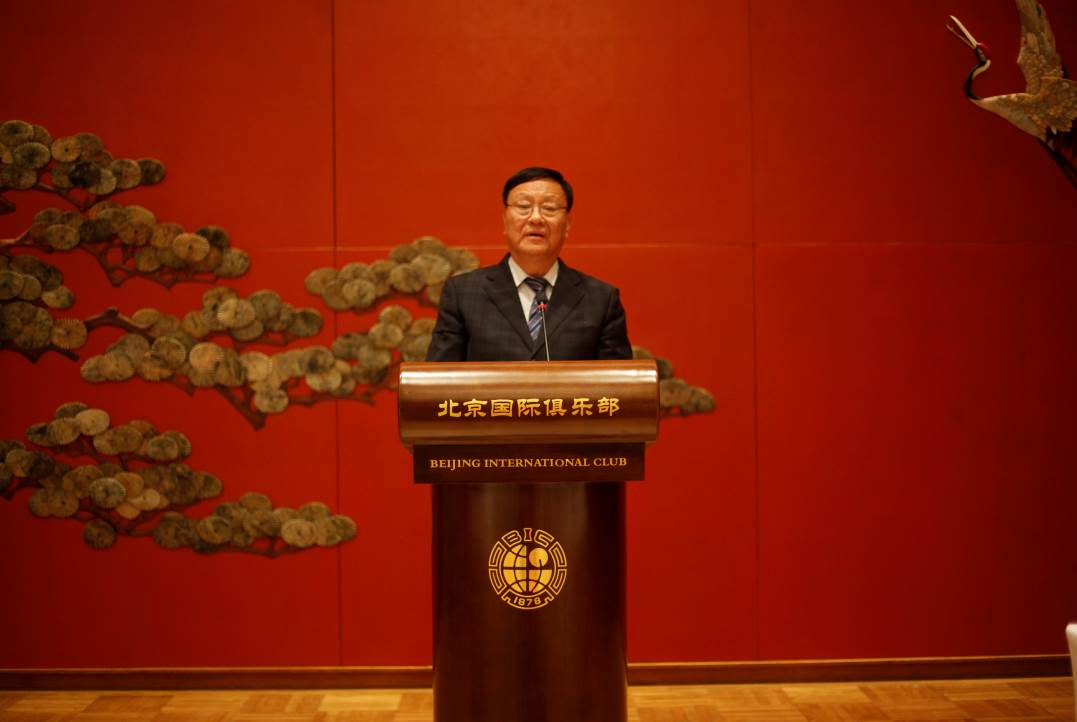
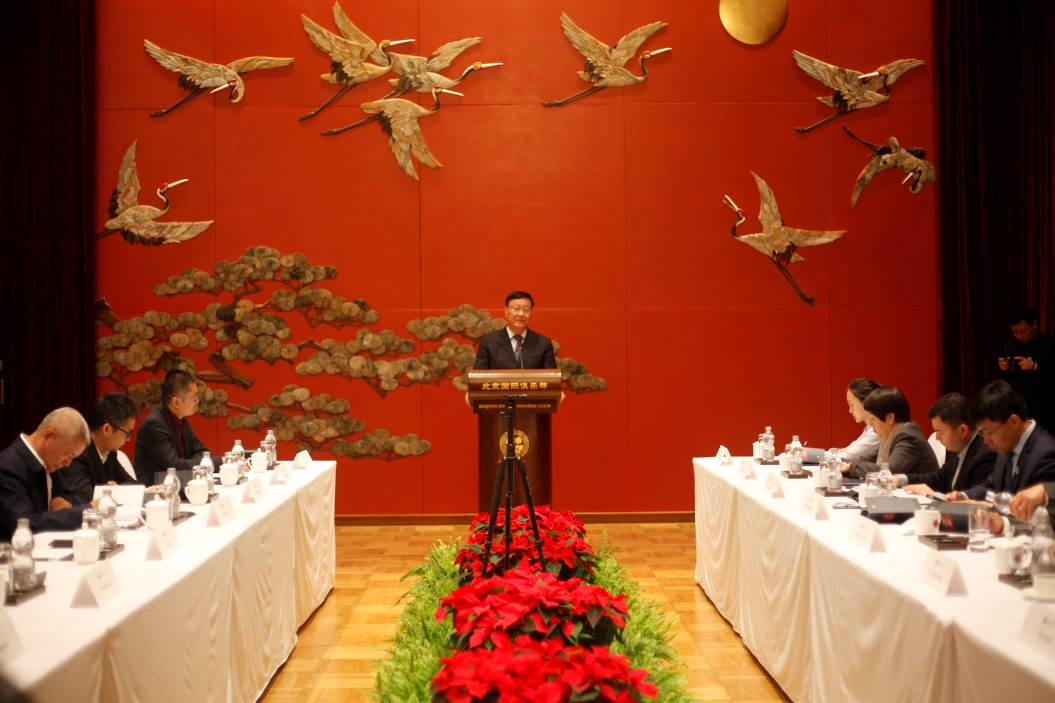
Chen Jinxing is delivering a keynote speech.
Mr. Chen delivered a speech titled “Promoting the Belt and Road Cooperation and Deepening the International Cooperation in Industrial Chain and Supply Chain”. He pointed out that promoting the Belt and Road cooperation is a major strategic decision made by the CPC Central Committee in view of the changing global landscape, the new situation and new tasks facing China’s development, as well as both domestic and international environment. Located at the crossroads of the Eurasian continent, countries in Central Asia are considered the central region of Eurasia, with important geostrategic significance. Our world today is witnessing accelerating changes unseen in a century, counter-globalization movements in economy, as well as prominent traditional and non-traditional security risks. In addition, the Russia-Ukraine conflict has rendered the international situation more severe and complicated. In the face of a turbulent and changing world, efforts in integrating the BRI into the development strategies of Central Asian countries are conducive to maintaining the resilience and stability of the global industrial chain and supply chain. By doing so, China can step up its efforts in building a dual-circulation development pattern in which domestic and overseas markets reinforce each other, so as to effectively prevent and respond to global challenges.
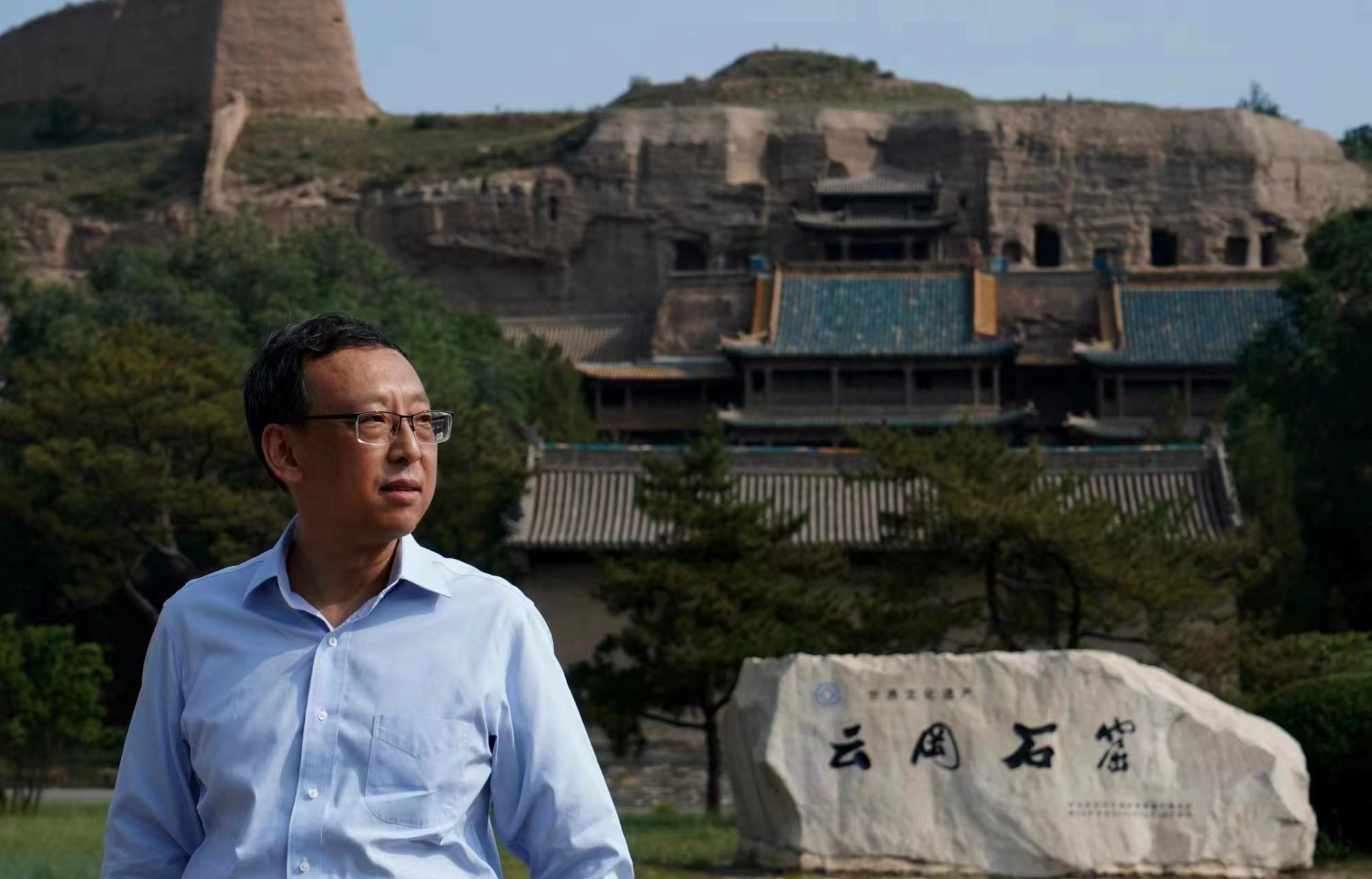

Hang Kan is delivering a keynote speech.
With a special invitation, Hang Kan, deputy of the National People’s Congress and Dean of Yungang Grottoes Research Institute, delivered a keynote speech titled “Pingcheng City: the Starting Point of the Silk Road in the Northern Wei Dynasty”. From the perspective of people-to-people exchanges and mutual learning among civilizations, Mr. Hang provided an overview of the ancient Silk Road, and introduced specifically the Silk Road during the Pingcheng period of the Northern Wei Dynasty, and the history of ancient Pingcheng city (today’s Datong city), a critical starting point of the ancient Silk Road throughout the Han Dynasty, the Sui and Tang Dynasties connecting West Asia, Central Asia, South Asia and Northeast Asia. As a world cultural heritage, Yungang Grottoes, integrating the essence of the cultures of Xianbei and Han ethnic groups, as well as Central Asian countries, is a splendid treasure of Northern Wei civilization and a crystallization of exchanges and integration among various ethnic groups. He pinpointed that the ancient Silk Road and the Silk Road Economic Belt not only helped to promote the prosperity of world commerce, but also exerted a profound impact on the integration of Chinese and Western cultures.
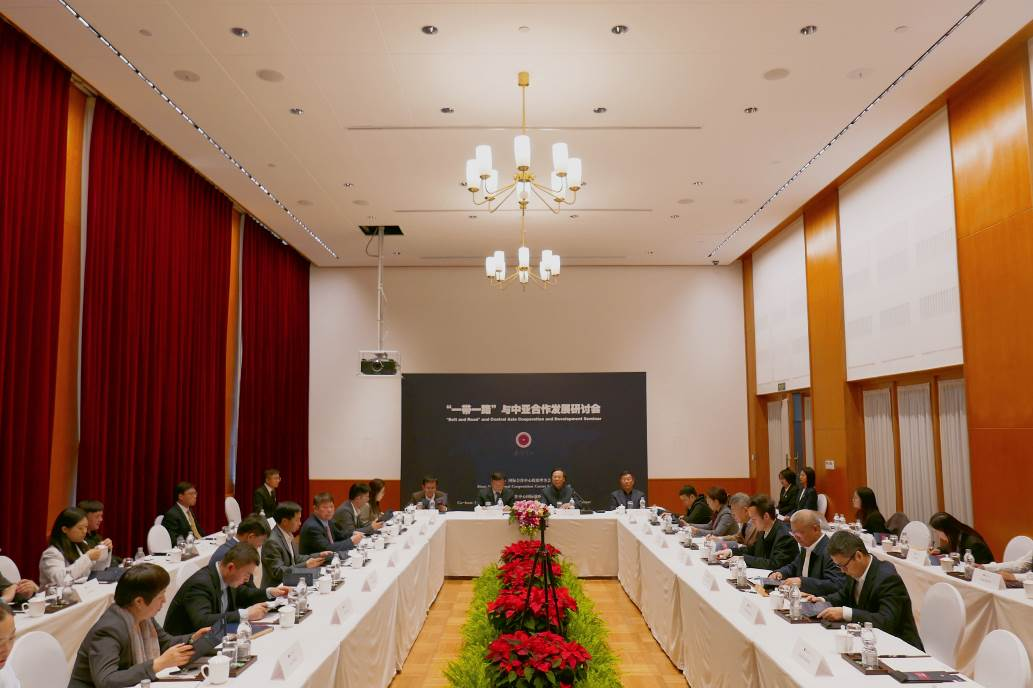
The Seminar
The seminar was held behind closed door and lasted nearly four hours, with more than 20 guests presenting their insights. Distinguished guests who presented the seminar includes Zhang Changyuan, former Deputy Director of the General Office of China Datang Corporation, Zhu Hongshan, former Vice General Manager of the Strategic Development Department of China Communications Construction Group, Feng Yubing and Li Guoshun, respectively Deputy Chief Economist and former Deputy General Manager of China Petroleum Technical Service Corporation Limited (CPTEC), Tian Hui, Executive Director of the Strategic Development Department of State Development and Investment Cooperation, Yin Chengkun, Director of China-Shanghai Cooperation Organization (SCO) Local Economic and Trade Cooperation Demonstration Area Beijing Liaison Center, Zhao Wangbing, Deputy General Manager of the Marketing Department of China Southern Airlines Cargo Logistics Company, and Ma Wei, director of Marketing Department of International Department of Sinohydro Engineering Bureau 4 Co., Ltd. Youth representatives from Central Asian countries, including Marika from Kazakhstan, Fan Jianing from Kyrgyzstan, Meihe from Tajikistan, attended and addressed the seminar. Guests at the seminar exchanged thoroughly on issues including “Cultural Exchange between China and Five Central Asian Nations: the Past, Present and Prospect”, “The Geostrategic Position of Central Asia and the Future of the Belt and Road Initiative”, and “Challenges and Opportunities of International Exchange between Chinese and Central Asian Youths”.
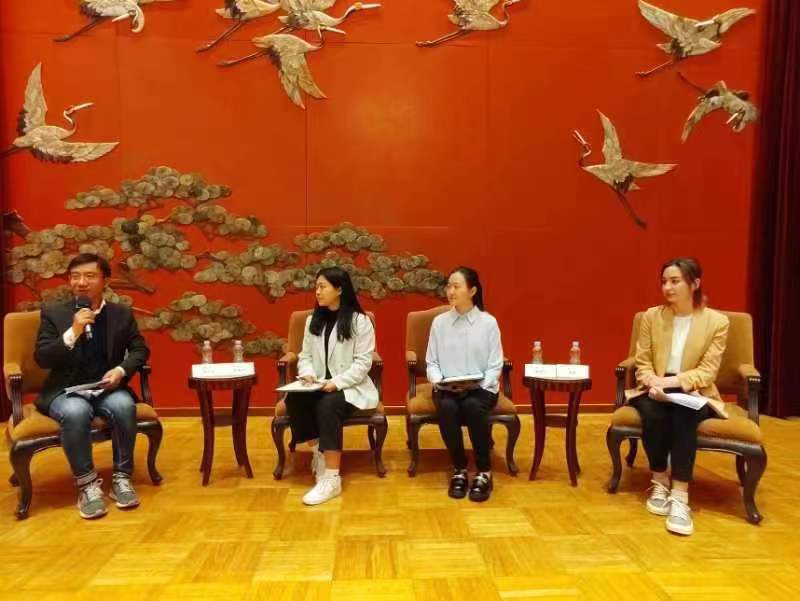
Youth Representatives are exchanging views.
It’s the consensus of all guests that this seminar is grounded in the geostrategic position of Central Asia from the perspective of the current global and geopolitical landscape and is to study the impact of alignment between the BRI and the development strategy of Central Asian countries on China’s domestic and external strategic environment, as well as the consequent opportunities and challenges. As the flow of production factors is hampered by challenges such as global pandemic and economic recessions, the BRI has demonstrated great resilience and vitality by playing an indispensable role in stabilizing regional and international supply and value chains. The BRI, in essence, is about the construction of infrastructure and connectivity. By further aligning the BRI with Central Asian countries’ national development strategies, the Initiative will ramp up the resilience and stability of the global industrial chain and supply chain, which will also contribute to China’s new development paradigm featuring dual circulation.
To align the BRI with the development strategies of Central Asian nations, China has established the “China plus Central Asia” cooperation mechanism. Going forward, China stands ready to work with Central Asian countries in fostering new business forms of trade and investment, sharing its enormous market and dividends of opening-up and development, and implementing cooperation projects. China will empower the cooperation with innovation by collaborating in digital trade and green, low-carbon, and circular economy. To safeguard the security and stability of the regional industrial chain and supply chain, China will step up infrastructure construction in the region with flexible resorts and maintain energy and food security with concerted efforts. China is committed to upholding multilateral trading system and strengthening cooperation within the framework of the WTO. China encourages more Central Asian countries to join the WTO. As China and Central Asian countries are adjacent, two sides should play out their geographical advantages and turn economic and trade cooperation at the border into a new driving force of pragmatic cooperation.
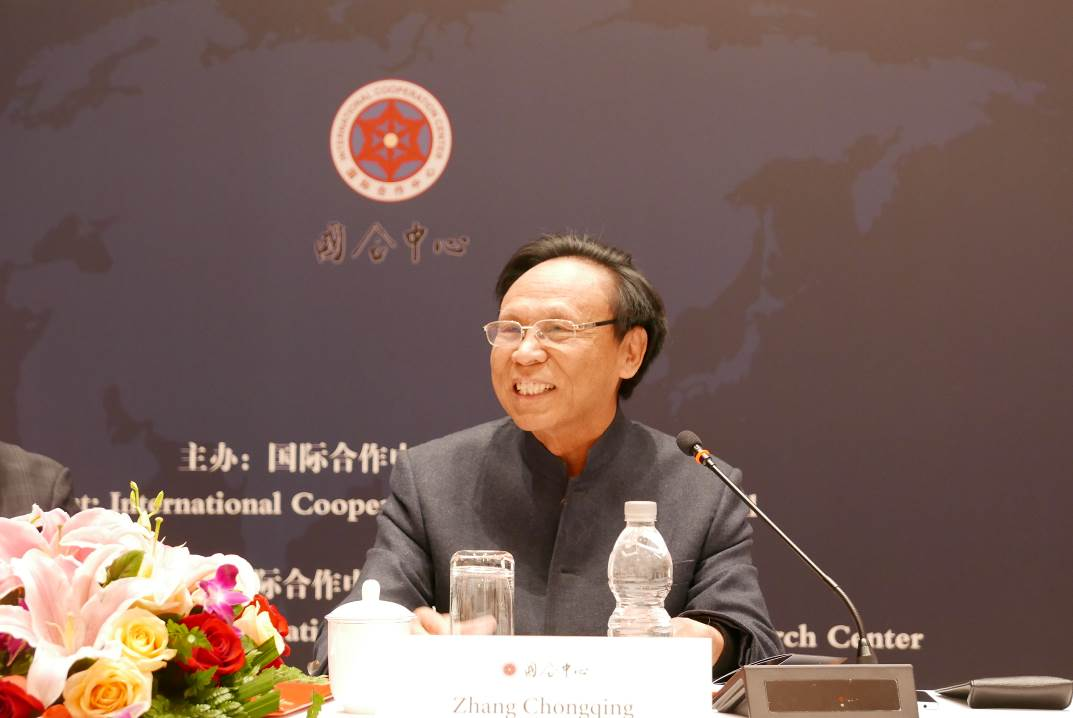
Zhang Chongqing is presiding at the seminar.
Zhang Chongqing delivered the concluding speech. He suggested that, the year 2022 marks the 30th anniversary of the establishment of diplomatic relations between China and the five Central Asian countries. Over the past three decades, those relations have leapfrogged into strategic partnerships, which has not only promoted the development and prosperity of the six countries, but also effectively contributed to the maintenance of regional peace and stability, setting an exemplar of the new type of international relations featuring mutual respect, equity, justice and win-win cooperation. Since the founding of the SCO in 2001, trade volumes between China and the five countries have enjoyed sustained and rapid growth, raising from 460 million USD in 1992 when the two sides first established diplomatic relations to 70.2 billion USD in 2022. With more than a hundred-fold growth in trade volumes and 15 billion USD of outward FDI stock in Central Asian countries in the past 30 years, China has become either the largest or the second largest trading partner of the five countries.
Zhang Chongqing pointed out that the BRI connects countries across Asia, Europe and Africa. In the east of the Belt and Road region lies the vibrant East Asian economies, and in the west the advanced European economies; in the middle are countries with huge potential for economic development. Central Asia is of great geostrategic importance for it borders China in the east, Russia in the north, Middle East and Europe in the west and Afghanistan and Pakistan, which can lead to the Persian Gulf, in the south. The region is not only a major transport hub connecting the three continents, but also a transit point for commodity trade and a highland for economic cooperation. Meanwhile, it serves as an important supplier and logistics node for global fossil energy and key mineral resources. Looking forward, China should forge synergy with the five countries by fostering consensus and enhancing coordination so as to contribute to global peace and development.
Chinese and Central Asian envoys attending the China-Central Asia Foreign Ministers’ Meeting in Xi’an, China, expressed their attention and support for this seminar through various means. The seminar was also attended by Zhang Yu, Deputy Director of the ICC Steering Committee; Pan Chuanping, member of the Legal Committee of the China Democratic League Central Committee; Qian Zhu, Deputy Director of the Liaison Committee of the China Association for Promoting Democracy Central Committee; Cheng Yu, Executive Secretary General of the ICC; Gao Chunli, member of the Overseas Liaison Committee of the China Zhi Gong Party Central Committee and Secretary General of the Zhifu Charity Foundation; Xing Fengliang, Director of the Belt and Road Communication Committee of the China Foundation for Peace and Development; Yang Zhaokai, Director of the Research Department of Xiqiao Mountain Academy; Wu Zhuohao, Associate Professor at the Communication University of China.

